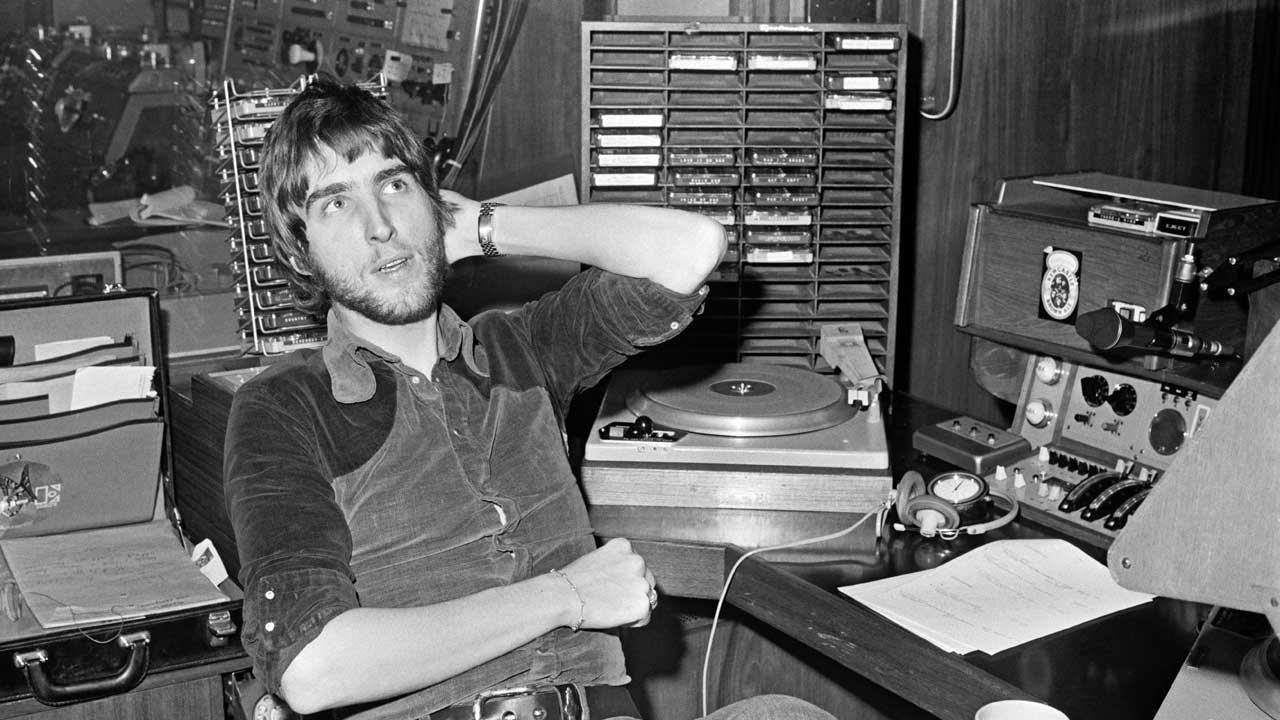Legendary radio DJ Johnnie Walker has died at the age of 79, just two months after announcing his retirement from broadcasting due to ill health. The news was confirmed by his BBC Radio colleague Bob Harris, who had taken over the Sounds Of The 70s show after Walker's retirement.
"We've heard from Tiggy Walker [Walker's wife] that Johnnie Walker has passed away," said Harris. "I've known Johnnie since the 1960s, when I first started listening to him on pirate radio, and we know what an incredible, warm, wonderful broadcaster he was.
"We also know how passionate he was about his music, and he went out on a limb many times to defend the music that he loved, and he was passionate about radio. And as the 60s moved into the 70s, he and I became increasingly close friends, a friendship that endured right up to the present day."
Walker made his name on Radio Caroline, the pirate station based on a former Danish passenger ferry moored in the North Sea, just outside the UK radio authority's three-mile jurisdiction.
Walker's 9pm-to-midnight show included such risqué features as ‘Frinton Flashers’, wherein he communicated with listeners in their cars on shore by asking them to flash their headlights in response to his questions, and the ‘10’o’clock Turn On’, in which a particularly lascivious slice of soul or bluesy rock was played.
“It was a bit like The Beatles and the Rolling Stones,” Walker says in his autobiography. “[Radio] London was The Beatles – slick and neat, the radio station you could take home to your mother for tea. Caroline was definitely the Stones – scruffy, anarchic, non-conformist and rebellious… It was there to give freedom and expression to the creative artistic explosion that was the Sixties.”
Walker joined BBC Radio 1 in 1969 but left for the US in 1975, where he worked at KSAN in San Francisco, KPFA in Berkeley, California and WHFS in Bethesda, Maryland, before returning to the UK in the early 1980s. He returned to Radio 1 in 1987, and began hosting a show on London station GLR the following year.
Fired after announcing that people would be "dancing in the streets" following the resignation of Prime Minister Margaret Thatcher, he went on to work for BBC Five and was involved in the early broadcasts of fledgling London alternative music station Xfm. Further stints at Radio 1 and Radio 2 followed, and he hosted Sounds of the 70s and The Rock Show until his retirement. He had been battling the lung disease pulmonary fibrosis.
Walker's last broadcast was in October, when he signed off from The Rock Show by saying, "'[It's] going to be very strange not to be on the wireless anymore. Also, by the same token, life will be slightly less of a strain really, trying to find the breath in order to do the programmes.
"Thank you for being with me all these years and take good care of yourself and those you love and may we walk into the future with our heads held high and happiness in our hearts. God bless you."
"He remained his charming, humorous self to the end, what a strong amazing man," says Tiggy Walker. "It has been a rollercoaster ride from start to finish. And if I may say - what a day to go. He'll be celebrating New Year's Eve with a stash of great musicians in heaven. One year on from his last live show. God bless that extraordinary husband of mine who is now in a place of peace."

